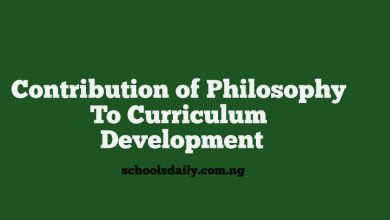Carl Rogers Contribution To Curriculum Development

Carl Rogers, a renowned psychologist, made significant contributions to the field of education, particularly in curriculum development. His focus on student-centered learning and humanistic principles revolutionized how educators approach teaching and learning.
Here are some of Carl Rogers’ key contributions to curriculum development
Experiential Learning
Carl Rogers, a renowned American psychologist, made significant contributions to curriculum development, particularly in the area of experiential learning. Rogers believed that learning is most effective when individuals are actively engaged in the process, rather than simply passively absorbing information. He argued that true learning occurs when students can connect new knowledge to their own experiences, making the learning process more meaningful and relevant.
Rogers’ emphasis on experiential learning led to the development of innovative approaches to curriculum design. These approaches, such as project-based learning, problem-based learning, and inquiry-based learning, focus on hands-on, real-world experiences that enable students to learn by doing. By engaging in these types of learning experiences, students can develop critical thinking, problem-solving, and collaboration skills, which are essential for success in the 21st century.
The experiential learning approaches inspired by Rogers’ work have had a profound impact on curriculum development. By shifting the focus from passive learning to active engagement, educators can create learning environments that are more engaging, motivating, and effective. As a result, students are better equipped to take ownership of their learning, develop a deeper understanding of the subject matter, and apply their knowledge in real-world contexts.
Student-Centered Learning
Carl Rogers was a pioneer in advocating for a shift from teacher-centered to student-centered learning environments. He believed that students should be actively engaged in their own learning, taking ownership of their educational experiences. In a student-centered learning environment, the teacher’s role changes from a lecturer to a facilitator, providing guidance and support as needed.
Rogers’ student-centered approach emphasizes autonomy, choice, and self-directed learning. This means that students are encouraged to take responsibility for their learning, making choices about what and how they learn. The teacher’s role is to provide a supportive and inclusive learning environment, facilitating student learning and encouraging exploration and discovery.
The student-centered learning approach advocated by Rogers has had a profound impact on education. By empowering students to take ownership of their learning, educators can create learning environments that are more engaging, motivating, and effective. Student-centered learning also helps to develop essential skills such as critical thinking, problem-solving, and self-directed learning, preparing students for success in an increasingly complex and rapidly changing world.
Humanistic Approach
Carl Rogers’ humanistic approach to education focuses on creating a supportive and nurturing learning environment that fosters student growth and development. At the heart of this approach is the belief that students learn best when they feel valued, respected, and understood. Rogers argued that a positive and inclusive classroom climate is essential for promoting student engagement, motivation, and learning.
Rogers’ humanistic approach emphasizes the importance of empathy, genuineness, and unconditional positive regard in the teacher-student relationship. When teachers create a safe and non-judgmental space for students to express themselves, students are more likely to take risks, ask questions, and explore new ideas. This approach also encourages teachers to recognize and appreciate the unique experiences, perspectives, and strengths that each student brings to the classroom.
The humanistic approach to education has far-reaching implications for teaching and learning. By prioritizing the emotional and social needs of students, educators can create learning environments that are more inclusive, supportive, and effective. Rogers’ approach also highlights the importance of teacher self-awareness, reflection, and professional growth in creating a positive and productive classroom climate. Ultimately, the humanistic approach to education offers a powerful framework for promoting student well-being, academic achievement, and lifelong learning.
Emphasis on Personal Growth
Carl Rogers’ educational philosophy places a strong emphasis on personal growth and development, in addition to academic achievement. He believed that education should be a holistic experience that fosters the development of the whole person, including their emotional, social, and cognitive growth. Rogers argued that personal growth is essential for students to become confident, creative, and critically thinking individuals who are equipped to succeed in all aspects of life.
Rogers’ emphasis on personal growth is reflected in his focus on fostering students’ self-esteem, creativity, and critical thinking skills. He believed that when students feel good about themselves and their abilities, they are more likely to take risks, explore new ideas, and reach their full potential. Rogers also recognized the importance of creativity in education, arguing that it is essential for students to develop their imagination, innovation, and problem-solving skills.
Freedom to Learn
In his book “Freedom to Learn”, Carl Rogers presented a compelling vision for a more student-centered and humanistic approach to education. He argued that traditional educational systems often stifle students’ natural curiosity and creativity by imposing rigid structures and expectations. Instead, Rogers advocated for a more flexible and autonomous approach to learning, where students are free to explore their own interests and pursue their own learning goals.
Rogers believed that when students are given the freedom to learn, they are more likely to experience a deeper sense of engagement, motivation, and fulfillment. This approach also allows students to take ownership of their learning, developing a sense of agency and self-direction that is essential for lifelong learning. By giving students the freedom to learn, educators can create a more inclusive and supportive learning environment that values diversity and promotes student well-being.
The concept of “Freedom to Learn” has had a profound impact on educational theory and practice. Rogers’ ideas have influenced a range of educational approaches, from student-centered learning to personalized learning and competency-based education. By emphasizing the importance of autonomy, agency, and self-direction in learning, Rogers’ work continues to inspire educators to rethink their approaches to teaching and learning, and to create more inclusive, supportive, and effective learning environments.
In conclusion, Carl Rogers’ contributions to curriculum development have had a profound impact on modern education. His emphasis on experiential learning, student-centered approaches, and humanistic principles continues to inspire educators to create more engaging, meaningful, and student-centered learning experiences.





